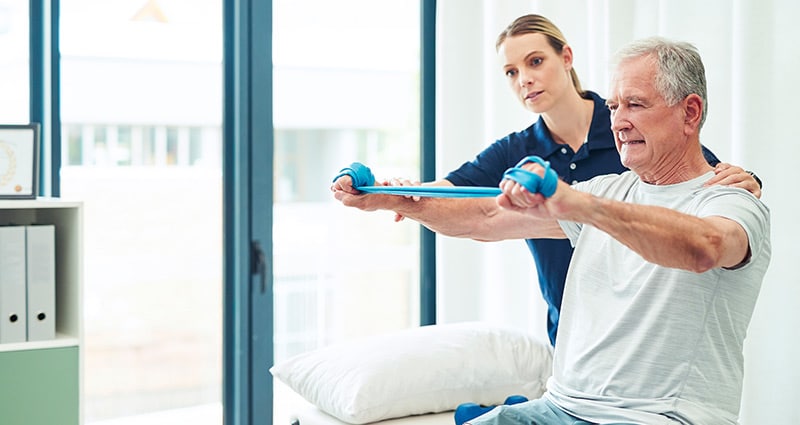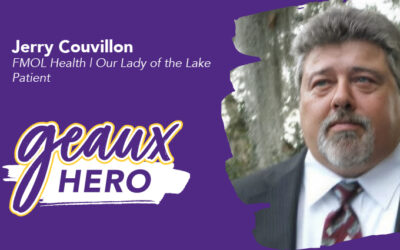One of the leading causes of life-long disability, stroke affects another American every 40 seconds. While stroke kills many Americans, it leaves even more with chronic health conditions. Stroke-induced complications include urinary incontinence, weakness, swallowing problems and memory problems.
However, all stroke victims don’t suffer these disabilities. Many people experience full stroke recovery.
What makes this possible? Three things.
1. Know the Signs of Stroke
The first step to recovering from a stroke is recognizing it as soon as it starts. An easy way to catch a stroke is to remember BE FAST (Balance, Eyes, Face, Arm, Speech, Time).
2. Receive Treatment for Stroke Immediately
Once you recognize a stroke, it’s time to take action. Never drive yourself to the hospital if you believe you’re having a stroke. Don’t wait to see if symptoms go away on their own. Get medical attention immediately by calling 911. Certain stroke treatments should be given within three hours of the onset of stroke symptoms. By seeking treatment quickly, you give yourself access to these treatment options and a better recovery potential.
3. Undergo Stroke Rehabilitation
Stroke recovery goes into full effect after successful treatment. Complete recovery can take weeks, months or even years. In many cases, one or more types of therapy is necessary for healing.
Therapy commonly used in stroke recovery includes the following:
- Speech therapy, which helps you regain the ability to speak and understand speech and swallow.
- Occupational therapy, which helps you regain the ability to perform activities of daily living, such as cooking and bathing.
- Physical therapy, which helps you regain coordination, strength and movement lost to stroke.
Following Your Stroke Recovery
According to the Centers for Disease Control and Prevention, 25 percent of all strokes are second strokes. What this means is that after recovery, you have to protect against a previous stroke.
How do you protect yourself against a second stroke? By managing other health conditions and maintaining a healthy lifestyle. If you have high blood pressure or high cholesterol, get it under control. Overweight? Work to lose it safely. Eat poorly and never exercise? Commit yourself to a healthier lifestyle.
By taking these steps to protect your good health today, you ensure your stroke recovery is not in vain tomorrow.




